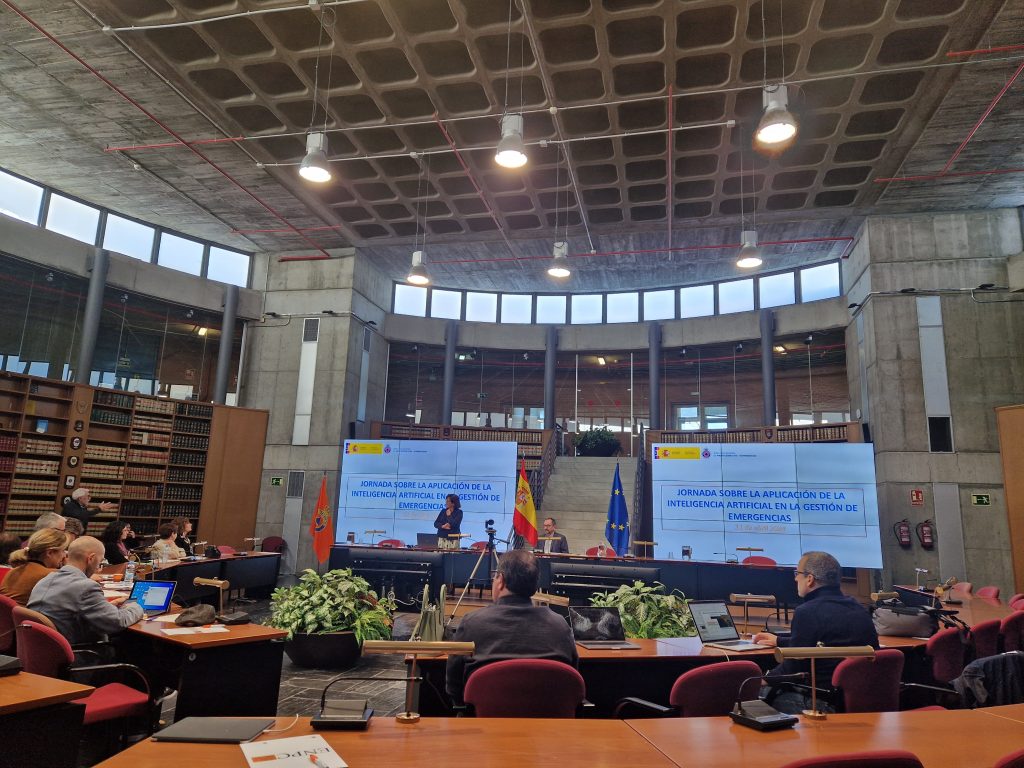
CITIC addresses the application of AI in enhancing and managing emergencies at the event held at the National School of Civil Protection
The ICT Research Centre of UDC shared its experience with Artificial Intelligence work in the ATEMPO project at an event in Madrid. The project, approved under the Interreg POCTEP 2021-2027 cross-border cooperation program, involves partners from Spain and Northern Portugal, with CITIC participating as a technological partner, delving into the application of AI in cross-border emergencies. The presentation, held on Thursday the 11th, was delivered by international project technicians Cristina Villar and Marta Trueba. It took place at the “I Conference on the Application of Artificial Intelligence in Emergency Management” at the National School of Civil Protection. The conference aimed to educate officials and technicians on emergency analysis, planning, and management in light of advancements in AI-based research and technological developments aiding risk management and emergency response.
The presentation outlined the features of the ATEMPO project, led by the Galician Agency for Emergencies (AXEGA) and driven by various public institutions from Portugal and Castilla y León. It is an ambitious collaborative program for emergency treatment and management aiming to enhance response to major natural disasters such as fires or floods, primary consequences of climate change, through joint action by administrations and research centres.
The UDC tea mis led by CITIC under the coordination of its director, Manuel G. Penedo. Their main mission is to promote the technological development of resources existing in the 112-emergency centre through AI. Researchers from the Industrial Campus of Ferrol are also involved in ATEMPO, contributing to tasks related to the modelling of assistance vehicles and the development of action protocols.
CITIC’s work in the ATEMPO project focuses on developing accident prediction systems using deep learning techniques, leveraging partner databases and other sources such as meteorological services, economic activities in industrial areas, demographic data, and land use planning. This also entails the development of AI-based data analysis algorithms, particularly predictive tools for emergency management and advanced prediction models to aid decision-making and resource allocation through sizing recommendation systems.





